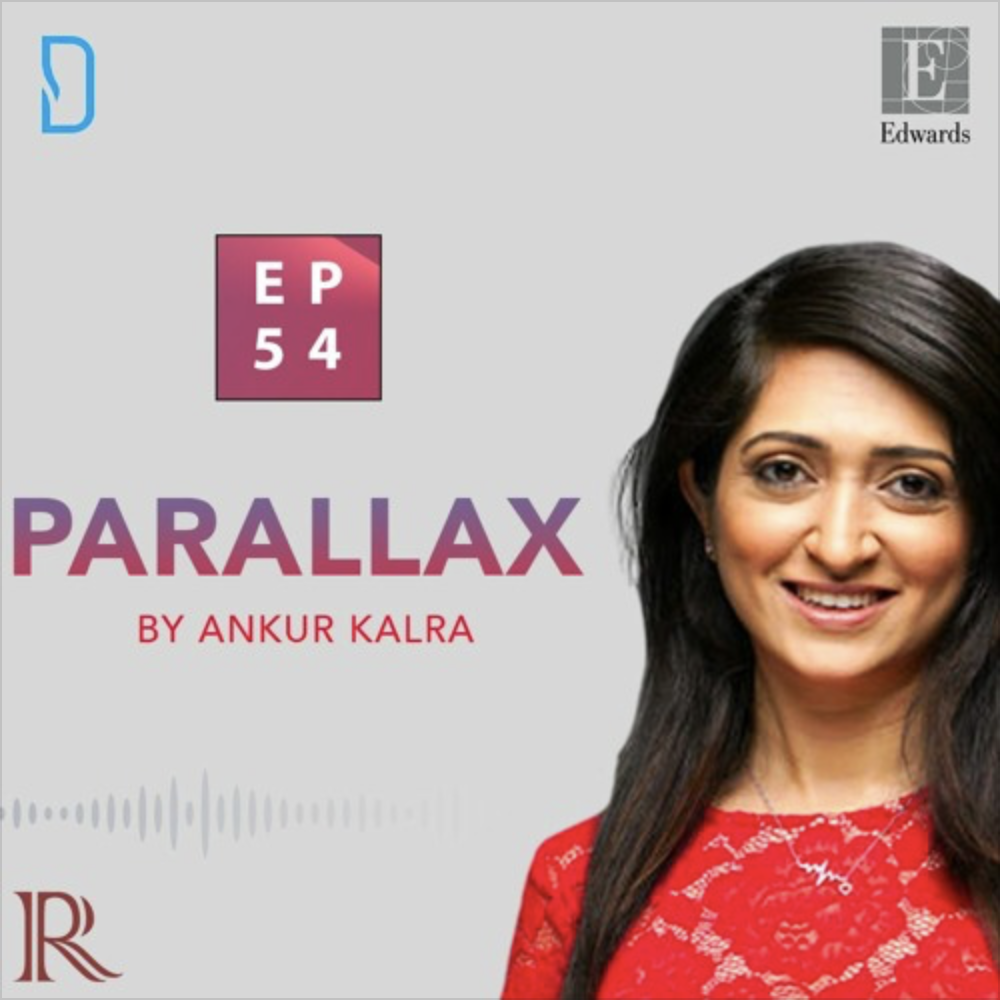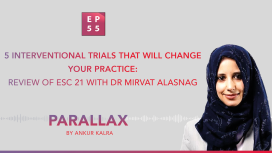
In this week’s episode Dr Ankur Kalra’s guest is Dr. Purvi Parwani, Director of Women’s Cardiovascular Disease Clinic and Assistant Professor at Loma Linda University Medical Center.
In this special ESC 2021 edition of Parallax, Ankur asks Purvi to review the highlights of the congress. Purvi summarises the design and findings of the trials and their importance in the treatment of patients. Ankur and Purvi discuss how the novel data presented at ESC will inform their practice.
Trials covered in detail include
• SSaSS: Effect of Salt Substitution on Cardiovascular Events and Death,
• STEP: Intensive vs. standard blood pressure control among older hypertensive patients
• EMPEROR-Preserved and Pooled: Effect of empagliflozin on cardiovascular death and heart failure hospitalisations in patients with heart failure with a preserved ejection fraction, with and without diabetes,
• LOOP: Screening for AF with an implantable loop recorder to prevent stroke compared with results of the STROKESTOP trial,
• IAMI: Influenza Vaccination after Myocardial Infarction randomised trial.
What are the take-home messages of ESC 21? How can we utilise the findings in our practice? What are the questions that need further investigation?
Questions and comments can be sent to “podcast@radcliffe-group.com” and may be answered by Ankur in the next episode. Guest @purviparwani, hosted by @AnkurKalraMD. Produced by @RadcliffeCARDIO.

Brought to you by Edwards: www.edwardstavr.com



Parallax’s guest this week is Dr Eric David Adler, Medical director of heart transplant and mechanical circulatory support at UC San Diego Health.

How did Dr Gragossian receive her diagnosis? How does she feel about her new reality? What drives her? What is her message to our listeners?

Just after 9/11, Heval, the 18-year-old Syrian Kurdish refugee found a job as a dishwasher. At this point, he was the sole provider of his family. The pressure that comes from being poor did not leave him for many years. Today, he is firm believer in giving back to underserved communities by spreading awareness within the medical community. As he says, well-meaning people of privilege are sometimes afraid to act. What we need is more people to bridge the gap and find ways to help each other.

What drives Dr Nishtha Sodhi? What were the formative moments of Dr Sodhi’s career? What are the new frontiers of cardiology?






